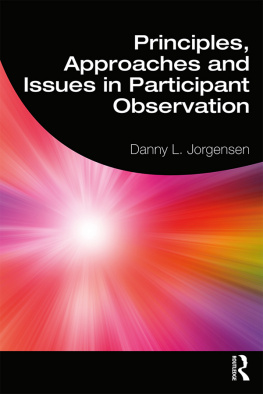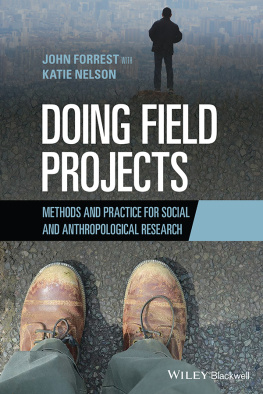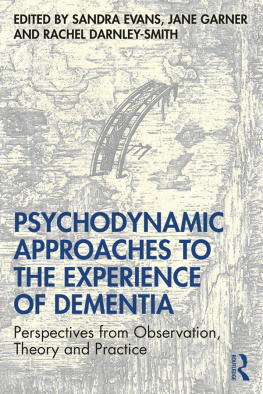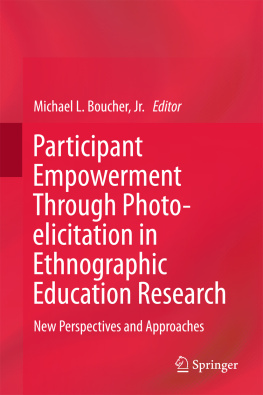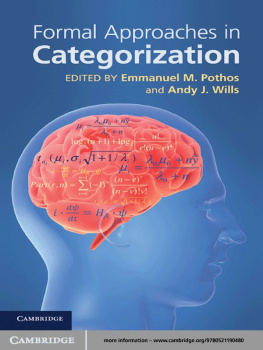Principles, Approaches and Issues in Participant Observation
This book provides a succinct, student-friendly outline of the principles, approaches, and issues in participant observation. An examination of these basic tenets is important for clarifying the philosophical rationale for conducting participant observation, making important research decisions, and appreciating the strengths and weaknesses of different approaches within the method.
Participant observation as a formal means of inquiry is developed in close relation with the competing approaches of reality (ontology), truthfully apprehending reality (epistemology), and formal research (methodology). In this volume Jorgensen discusses the resulting methodologies of positivism, humanism, and most recently postmodernism, in relation to principles, approaches, and issues in participant observation. Specific features of participant observation, as exemplified in a wide range of classic and contemporary studies, are examined by way of these methodological approaches along with the troublesome complexities of values, politics, ethics, and contemporary debates over appropriate representations of the resulting findings about human life.
This concise primer is suitable for undergraduate and graduate students in a wide range of disciplines such as anthropology, religious studies, sociology, and nursing.
Danny L. Jorgensen is Professor Emeritus at the University of South Florida. Dr. Jorgensens teaching, research, and writing has focused on the sociological consequences of modernity, especially secularization, using a variety of qualitative methods, chiefly participant observation.
First published 2020
by Routledge
2 Park Square, Milton Park, Abingdon, Oxon OX14 4RN
and by Routledge
52 Vanderbilt Avenue, New York, NY 10017
Routledge is an imprint of the Taylor & Francis Group, an informa business
2020 Danny L. Jorgensen
The right of Danny L. Jorgensen to be identified as author of this work has been asserted by him in accordance with sections 77 and 78 of the Copyright, Designs and Patents Act 1988.
All rights reserved. No part of this book may be reprinted or reproduced or utilised in any form or by any electronic, mechanical, or other means, now known or hereafter invented, including photocopying and recording, or in any information storage or retrieval system, without permission in writing from the publishers.
Trademark notice: Product or corporate names may be trademarks or registered trademarks, and are used only for identification and explanation without intent to infringe.
British Library Cataloguing-in-Publication Data
A catalogue record for this book is available from the British Library
ISBN: 978-0-367-41528-0 (hbk)
ISBN: 978-0-367-41530-3 (pbk)
ISBN: 978-0-367-81508-0 (ebk)
Danny L. Jorgensen graduated from Catalina High School in Tucson, Arizona, in 1969, and earned degrees in Sociology from Northern Arizona University (B.S. 1972), Western Kentucky University (M.A. 1974), and The Ohio State University (Ph.D. 1979). He was at Arizona State University in Sociology (19761978), and then the University of South Florida, Tampa and St. Petersburg, in Sociology (19781991) and Religious Studies (19912018). Jorgensen chaired the Religious Studies department at University of South Florida, Tampa, from 1999 to 2006, where he currently is Professor Emeritus.
Dr. Jorgensens teaching, research, and writing has focused on the sociological consequences of modernity, especially secularization, using a variety of qualitative methods, chiefly participant observation. Most of this work deals with American religions outside of the mainstream, including New Age occultism and divination, Neopaganism and witchcraft, Scientology, Latter Day Saints, and most recently old order Anabaptists, principally Mennonite and Amish sects.
He currently resides near Lebanon, Missouri, with his wonderful spouse, June, on a hundred acre farm.
Experiencing life directly by participating in and thereby observing it is one of the most time-honored forms of human study. The appropriation and development of participant observation, as a formal means of inquiry, developed in close relationship to rival views of reality (ontology), truthfully apprehending it (epistemology), and formally researching it (methodology). The resulting methodologies of positivism, humanism, and most recently postmodernism are discussed in relationship to principles, approaches, and issues in participant observation. Specific features of participant observation, as exemplified in a wide range of classic and contemporary studies, are examined by way of these methodological approaches along with the troublesome complexities of values, politics, ethics, and contemporary debates over appropriate representations of the resulting findings about human life. Consideration of these oftentimes opaque and formidable, but extremely important, matters will be valuable to advanced students, researchers, academics, and many others in many different human studies fields wanting to acquire a more comprehensive understanding of this unique method of investigation.
Participant observation is one of the oldest and most persistently used means for investigating human existence. This book is intended as a primer in certain critical principles, approaches, and issues involving this unique and powerful method for collecting information about human existence. In the not too distant past, all of these principles, approaches, and issues were hotly contested and debated in the social sciences and even philosophy; and the origins of these disagreements extended back to the Enlightenment and the emergence of the social scientific disciplines. It has become popular today to regard these concerns as a part of the history of the social sciences which no longer are of much interest, having been superseded by new, different, and more pressing issues and problems, especially in the form of postmodernism. Many of these matters no longer are viewed as urgent concerns in the social sciences, although they occasionally become evident in critiques of participant observation today. The old debates, moreover, are alive and lively in many of the applied fields which have appropriated participant observation and other qualitative methods, particularly when the predominance of natural scientific methodologies has required their justification. Yet, even in the social sciences the specter of the previous debates and disagreements oftentimes is necessary for an adequate understanding of ongoing concerns for truth, theorizing, and appropriate representations of human existence.
The origins of what came to be known as participant observation in anthropology, sociology, and subsequently most all human studies is as old as humanity. Participating in human activities while observing is the basis whereby people were able to tell stories about the natural environment, gathering and hunting food, constructing shelter, the activities of the group involved, unique occasions, activities and events, and especially encounters with seemingly unusual objects, proceedings, and peoples. This provided the basis for the Homeric epics, for instance, and countless other little known or unknown accounts of human existence. The narratives of explorers, missionaries, social servants, human helpers, and other participants in human existence is what inspired anthropologists, sociologists, and other academics to engage in participant observation, initially informally and mostly without much reflection, for the purpose of describing the lifeways of interest to them and their disciplinary communities.

